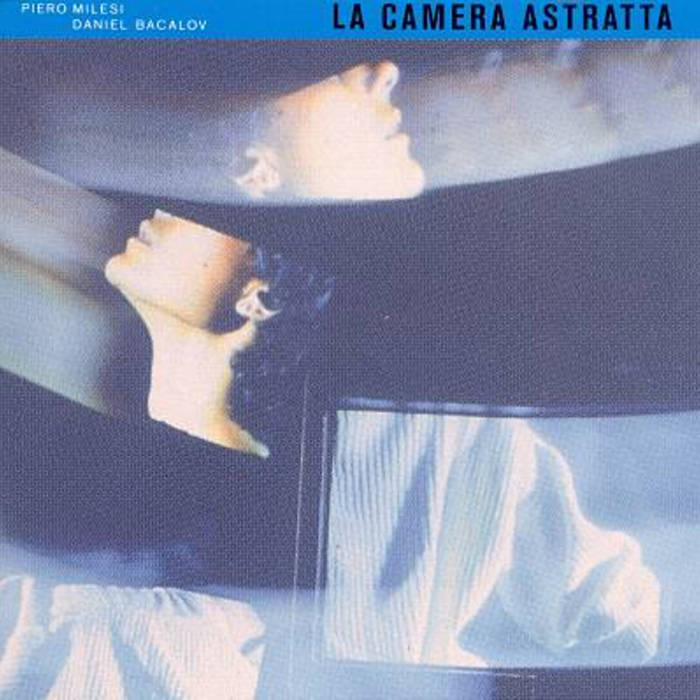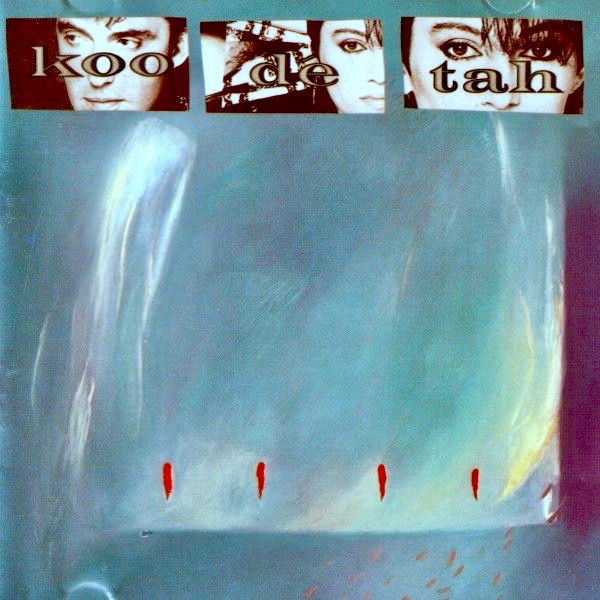
You may remember Piero Milesi from his excellent The Nuclear Observatory of Mr. Nanof (hi Adam, thanks again)–here he’s in collaboration with Daniel Bacalov, another linchpin of Italian minimalism from whom we’ll definitely be hearing more in the future.
The two made La Camera Astratta as a score for a large-scale dance and performance piece, also referred to as a “video opera” by Studio Azzurro and Giorgio Barberio Corsetti (you can see some excerpts here). Though the record was released in 1989, it looks as if the score and the piece itself were both made in 1987.
The score is most memorable for its use of samples, which are often treated as percussion: water splashing, a camera snap, gasps, exhales, shushes, shouts, and sighs. At times it becomes difficult to distinguish between sample and instrument: “Camera 1 Parte” is perforated by what sounds like crickets but (I’m pretty sure) is some kind of percussion; regardless, it blankets the song in a hushed evening pastorality. Elsewhere, the dry, blunt avant-gardism of “Sequenza Ragazze 1 Parte” might appeal to Meredith Monk fans; and personal favorite “Acqua” is deeply playful (despite being used to accompany some pretty anxious moments in the performance piece)–a calypso-esque percussive backbone punctuated by bathtub splashes, camera snaps, a cash register bell, worked up into nine frothy minutes. Though La Camera Astratta might seem deceptively academic upon first listen, it opens up with increasing generosity, revealing something deeply thoughtful, meditative, and even joyful.
